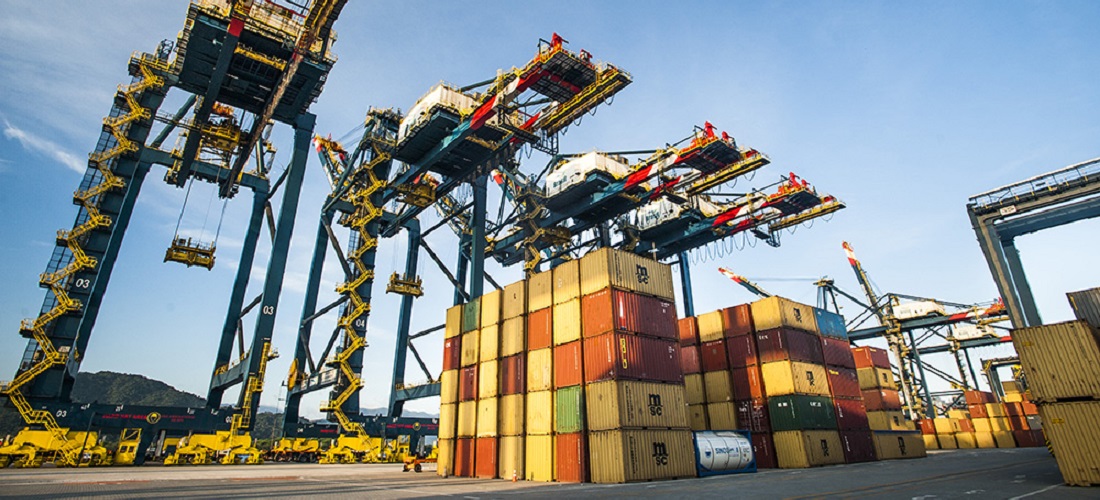
Port terminal seals unprecedented collective agreement in Brazil
May, 15, 2023 Posted by Gabriel MalheirosWeek 202323
According to the newly negotiated clauses, port workers registered with the Labor Management Agency known as Ogmos in Brazil will have priority – rather than exclusivity – in hirings as long as the agreement remains valid. According to experts, this sets a historical precedent in a contentious issue that affects the Brazilian port sector.
The Brazilian Ports Law (12.815/2013), in effect for ten years, established that all hirings for stevedoring, stowage, vessel surveillance, cargo inspection, and repair with no fixed-term employment contracts should be done “exclusively among registered casual port workers.”
According to the law, recruiting would thus entail the mandatory intermediation of Ogmo, an organization established nearly 30 years ago for this purpose. However, in recent years, the exclusivity demand has produced several legal issues.
Lawyers argue that it is not always possible to fill open positions solely with registered workers due to the level of specialization required or the salaries offered.
In practice, the norm prevents hiring workers from the broader labor market. And the legal character of the issue jeopardized hirings made through the priority system.
The collective negotiation between Brasil Terminal Portuário and Sindogeesp reverted the country’s Superior Labor Court (TST) decision in October 2021.
At the time, the ministers agreed that port workers should only be hired through the Labor Management Agency. They claimed that recruitments done through labor unions were invalid, even though this had been agreed upon in negotiations.
According to Thiago Miller, partner at Advocacia Ruy de Mello Miller, which represents Brasil Terminal Portuário, the new agreement reached in March with Sindogeesp resulted from two years of ongoing talks. It will be valid from this moment on to February 2025.
“The agreement modulates the application of the Ports Law to build a new reality, a negotiated norm that prevails over the legislated. It brings legal certainty,” says Miller.
The collective agreement deviates from the exclusivity rule provided by the law, according to Eraldo Aurélio Rodrigues Franzese, attorney for Sindogeesp at the Franzese Advocacia law firm, and creates a new criterion of priority hiring through Ogmo wit mutual concessions between the union and the company. Around 400 workers are represented by the association.
According to the agreed-upon terms, which will be submitted for judicial approval, the selection process for hiring port operators will be divided into three phases. Each stage must be transparent and communicated to the union.
Only workers registered with the Ogmo of Santos who are equipment operators will compete for the vacancies in the first phase. After that, if any vacancies remain, they will be filled by port workers who work in other areas like stowage, stevedoring, inspection, surveillance, or blocks.
Finally, if vacancies are still in the third phase, employees from the general labor market and terminal employees can be hired.
According to a statement issued to Valor by BTP, hiring registered professionals listed by the Labor Management Agency would remain the terminal’s first option for filling positions with no-fixed-term employment contracts.
The company has 1,200 direct employees and can handle approximately 1.5 million twenty-foot equivalent units (TEUs) annually.
Source: Valor Econômico
To read the original news report, please check: https://valor.globo.com/legislacao/noticia/2023/05/12/terminal-portuario-fecha-acordo-coletivo-inedito.ghtml
-
Other Logistics
Jan, 13, 2022
0
Tankers International rolls out carbon offset offering for VLCCs
-
Grains
Jun, 22, 2020
0
Brazil’s soy, sugar and petroleum exports already surpass June 2019 levels
-
Ports and Terminals
Aug, 29, 2023
0
Interest grows in temporary operation contract for Itajaí Port
-
Ports and Terminals
Jul, 12, 2021
0
Record-breaking first 6 months for Ports of Paraná

